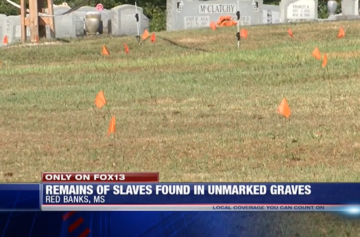A thorough investigation into Professor Lawrence Jackson’s heritage revealed to the new father just how close he was to the days of slavery. After having children, Jackson began his search for his family history and discovered his own great-grandfather had been a slave.
The professor at Emory University teaches English and African American studies every day, and after taking a look at his ancestors he would certainly have something interesting to share with his students for his next lesson plan.
“If you said to me that my father’s grandfather grew up in slavery and actually spent maybe the first 10 or 15 years of his life as human chattel, I wouldn’t have been able to take that idea so seriously,” Jackson admitted to the host of weekends on All Things Considered, Guy Raz. “I didn’t imagine that those times – the antebellum heritage of the United States – were so close to me,” he added.
The discovery shocked the professor since he began the journey with nothing more than childhood memories. Since his discoveries he has written a new book titled My Father’s Name: A Black Virginia Family After the Civil War, which maps out his search for his family history.
Jackson was able to locate the information concerning his ancestors by gaining access to a U.S census from 1900. This document revealed the name of his great-grandparents, Edward Jackson and Celestia Hundley Jackson. After obtaining his great-grandparents marriage certificate he also discovered the names of his great-great grandparents.
“I found that my great-great grandfather Granville Hundley, he bought his 40 acres and a mule … the same year that the federal troops left the South,” said Jackson. Jackson couldn’t believe that his great-great grandfather was able to obtain the ample amount of Pennsylvania County land when he was in his early 60s. In his words, he was able to “grasp the dream of yeoman farmer.” Jackson learned that it didn’t take long for his great-great grandfather to plant his crops and begin distributing the land out to his children.
Since then, all of Granville Hundley’s children have lost the land that he worked back in the 1870s. His 40 acres eventually became the heart of the Virginia tobacco empire. Even hundreds of years later Jackson was able to visit the plot of land and map out the acres that used to belong to his ancestors.
According to Jackson, his family’s history is something that many African Americans can relate to. There is no “economic triumph or battling segregation or the KKK, it’s the story of very ordinary common people.”


